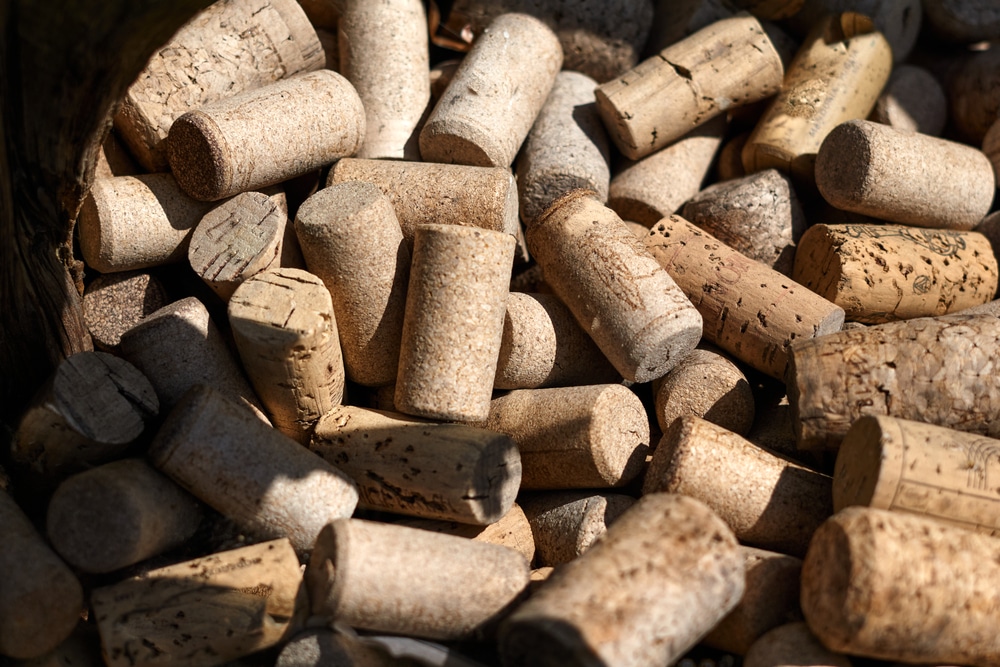
Wine corks are a natural and biodegradable material, which means that they gradually decompose over time. When introduced into the soil of our plant pots, they end up becoming nutrients that plants can absorb. This is an excellent way of recycling corks, helping the environment and improving the development of your plants. Below, we'll give you all the details you need to make the most of this trick.
WINE CORKS
Wine corks are composed of lignin and suberin, two organic compounds that are resistant to decomposition. This means that they take longer to decompose compared to other organic materials, such as leaves or grass. As corks decompose, they release small amounts of nutrients, such as nitrogen, phosphorus and potassium, into the soil. These nutrients are essential for plant growth and can help them thrive.
In addition, wine corks can also help prevent the appearance of mold in the soil. Mold is a fungus that can grow in warm, humid environments and can end up damaging plants. By introducing wine corks into the soil, you can help create a drier, more ventilated environment, making it more difficult for mold to grow and helping to keep your plants healthy.
HOW TO KEEP CORKS IN JARS
If you decide to use cork stoppers to help your plants bloom more beautifully and be more fertile, it's important to break them into small pieces with the help of scissors and bury them in the soil of your pots. After a few days, you'll see how the pieces of cork start to decompose and become a substrate for the plant.
This is a natural and eco-friendly trick, as cork stoppers are a biodegradable material that can be reused to help your plants grow. What's more, using cork stoppers helps to reduce waste and preserve the environment. So try this trick and see how your plants thrive!
WHY CORK IS GOOD FOR THE SOIL
Mulching is an important technique for maintaining the health of the plants in your pots. In addition to common composts such as banana peels or coffee grounds, organic wine corks can also be used for this purpose. The corks help protect the roots of the plants, prevent weeds from growing and keep the soil moist.
By using wine corks as mulch, you are providing an organic material that decomposes slowly and releases important nutrients for plants, such as nitrogen, phosphorus and potassium. In addition, the mulch helps to retain moisture in the soil, reduce evaporation and keep the temperature stable.
To use wine corks as mulch, simply crush them into small pieces and spread them over the surface of the soil. Make sure you leave enough space around the base of the plant for air to circulate freely. Over time, the corks will decompose and become part of the soil, improving its quality and fertility.
MORE TIPS FOR YOUR PLANTS
There are other homemade tricks that can help keep your plants healthy and shiny. Here are a few suggestions:
Chlorine-free water. If possible, avoid watering your plants with chlorinated water. Rainwater is an excellent option for your plants, but if you don't have access to it, let the tap water stand for a few days before watering.
Use baking soda. Baking soda can be used as a natural pesticide and fungicide for your plants. Replace toxic and expensive products with baking soda to care for your plants.
Use nutrient-rich water. If you have an aquarium, you can use the water from cleaning the tank to water your plants. Aquarium water contains organic nutrients that can feed your plants.
These are just some of the tricks you can use to keep your plants healthy and shiny. Always remember to choose eco-friendly options and avoid using chemicals that are harmful to the environment.
Did you like the tips? Good for you!
So, take the opportunity to add more flavor to your days. Visit our social networks! We have then Pinterest, our Facebook and the Instagram, finally the Youtube! So, make many more recipes, they are so good!


